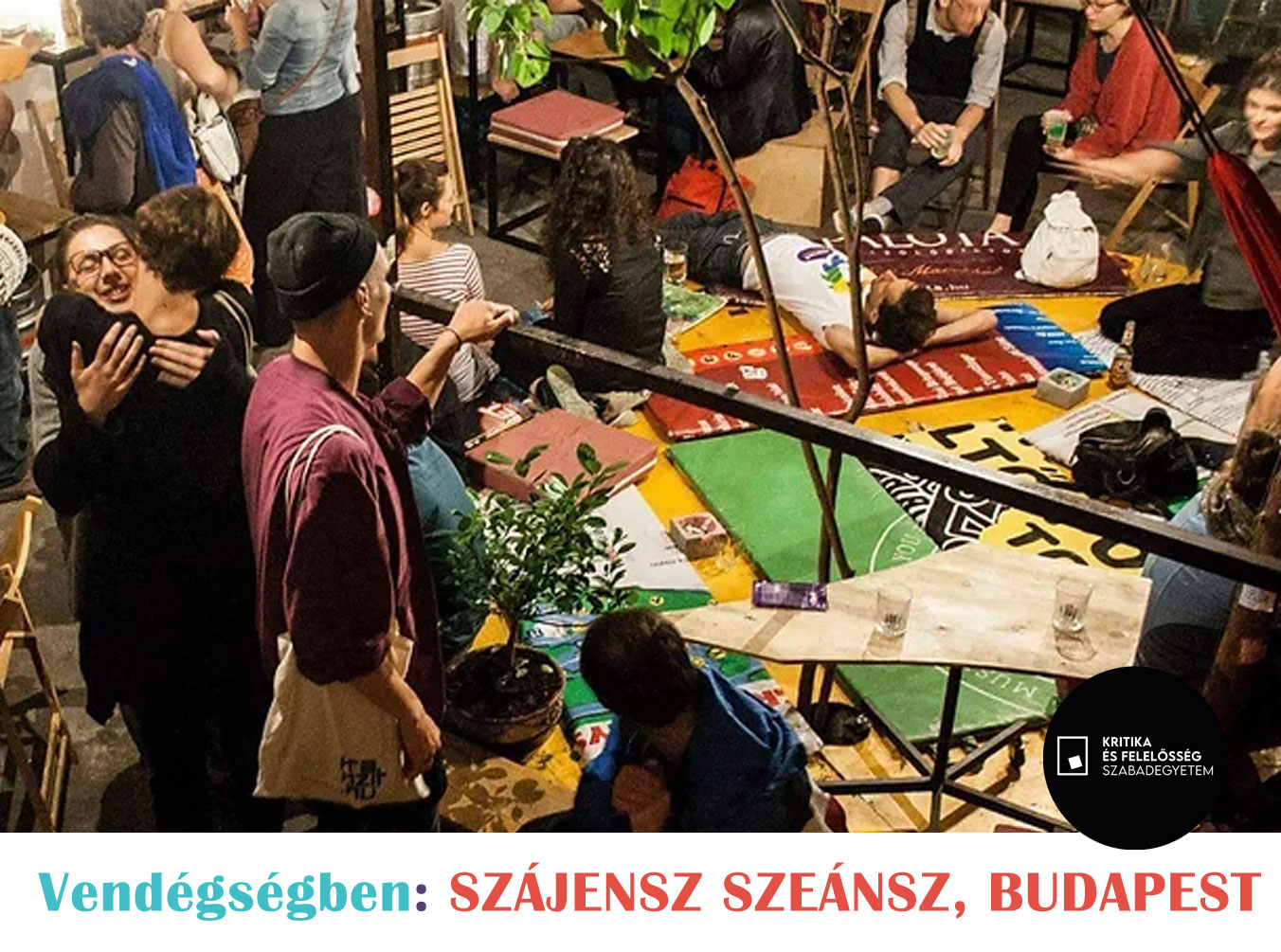
visiting: Szájensz Szeánsz, Budapest
The Klara and Rosa Association will mark the beginning of its collaboration with the Szájensz Szeánsz association from Budapest with a two-day program taking place on Friday and Saturday, May 24 and 25, at the premises of Klara and Rosa (Šandora Petefija 15). Szájensz Szeánsz is a member of the umbrella association Marom.
.
Friday, May 24, 2024, 4 PM
The Era of Anxiety – A Discussion on the Social Causes of Individual Psychological Problems
.
It is often believed that mental strength is a sign that we can remain happy, creative, and productive despite circumstances. But what if we justifiably feel bad and fail to adapt? Why is mental health deteriorating rapidly worldwide, and what can psychology do about it?
.
Contemporary self-awareness movements, based on resilience through optimism, primarily address individual adaptation to social problems like exhausting workplaces, social divisions, and the rise of inequality. What can an individual do besides individual adaptability?
.
Are you interested in how social structures and systems affect our individual well-being? How do work environments or social expectations influence our lives?
.
Speaker: Dr. Čaban Šamu, lawyer, behavioral analyst, PhD candidate at ELTE
The lecture will be in Hungarian.
.
Saturday, May 25, 2024, 4 PM
.
Women’s Circles in the Information Society
.
Women’s circles are often based on trust, honesty, and understanding, creating a safe environment for reflecting on everyday experiences. Can this work in today’s fast-paced world? What is the significance of women’s circles in a digital society?
.
Be part of a women’s circle for a day! Join an interactive discussion and share your thoughts!
.
Facilitator: Černai Lila, psychologist.
The discussion will be in Hungarian
https://www.noikor.com/
https://www.instagram.com/noikor_/
.
Saturday, May 25, 2024, 7 PM
.
About the Common: What Is It Like to Live in the EU?
.
U okviru serije javnih razgovora pod nazivom “O zajedničkom” koji imaju za cilj edukaciju, pokretanje dijaloga, razmenu mišljenja, slušanje i zajedničko promišljanje jačamo osećaj zajedništva, kritički promišljamo i delimo iskustva, ideje i prakse, inicirajući razgovore na različite teme i probleme koji su prisutni u našem društvu i gradu. Razgovor će se voditi na mađarskom jeziku.
.
From June 6 to 9, 2024, millions of Europeans will go to the polls for the European Parliament elections, participating in shaping the future of European democracy. Hungary has been a member of the European Union for twenty years, while Serbia has been on the path to membership for roughly the same amount of time.
.
What are citizens' experiences, perceptions, and attitudes toward European values and opportunities in the Union in both countries? What is the atmosphere in Hungarian society, and how does Serbian society view life in the Union? How do we experience and implement democracy?
.
Participants:
Danijel Milbaher, political scientist, analyst at the Polemia Institute (Budapest)
Virag Đurković, editor-in-chief of the trilingual research portal Transparenta Vojvodina (Subotica)
.
Moderator: Čaban Šamu, lawyer, psychotherapist, PhD candidate at ELTE.
.
The umbrella association Marom was established in Hungary in 2002 by a group of students who, through cultural mediation at both local and national levels, aim to build a more acceptable and open society. Over the years, they have become one of the most important civil society organizations that bring communities together, advocating for a fairer society that protects the vulnerable, helps those in need, respects and celebrates diversity, and peacefully fights against all forms of exclusion and oppression. They create independent spaces where communities can freely share their thoughts, encourage action and participation, and safeguard freedom and independence.
